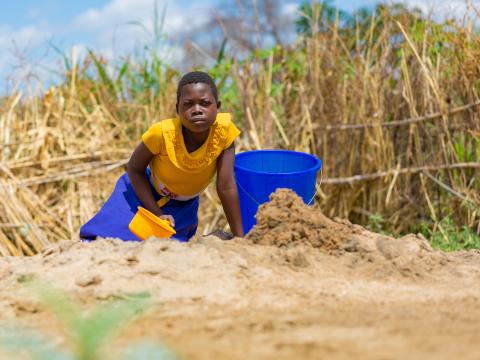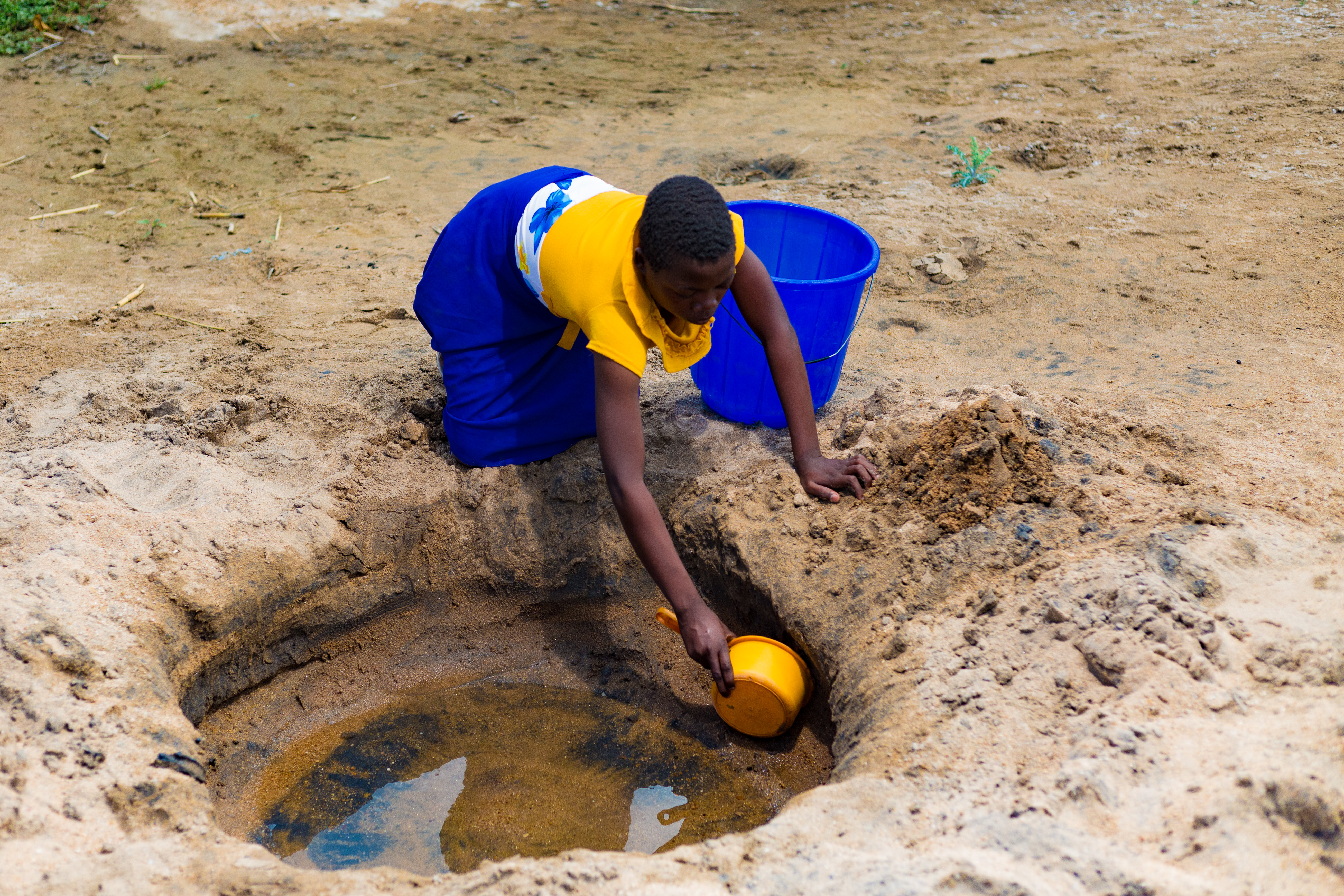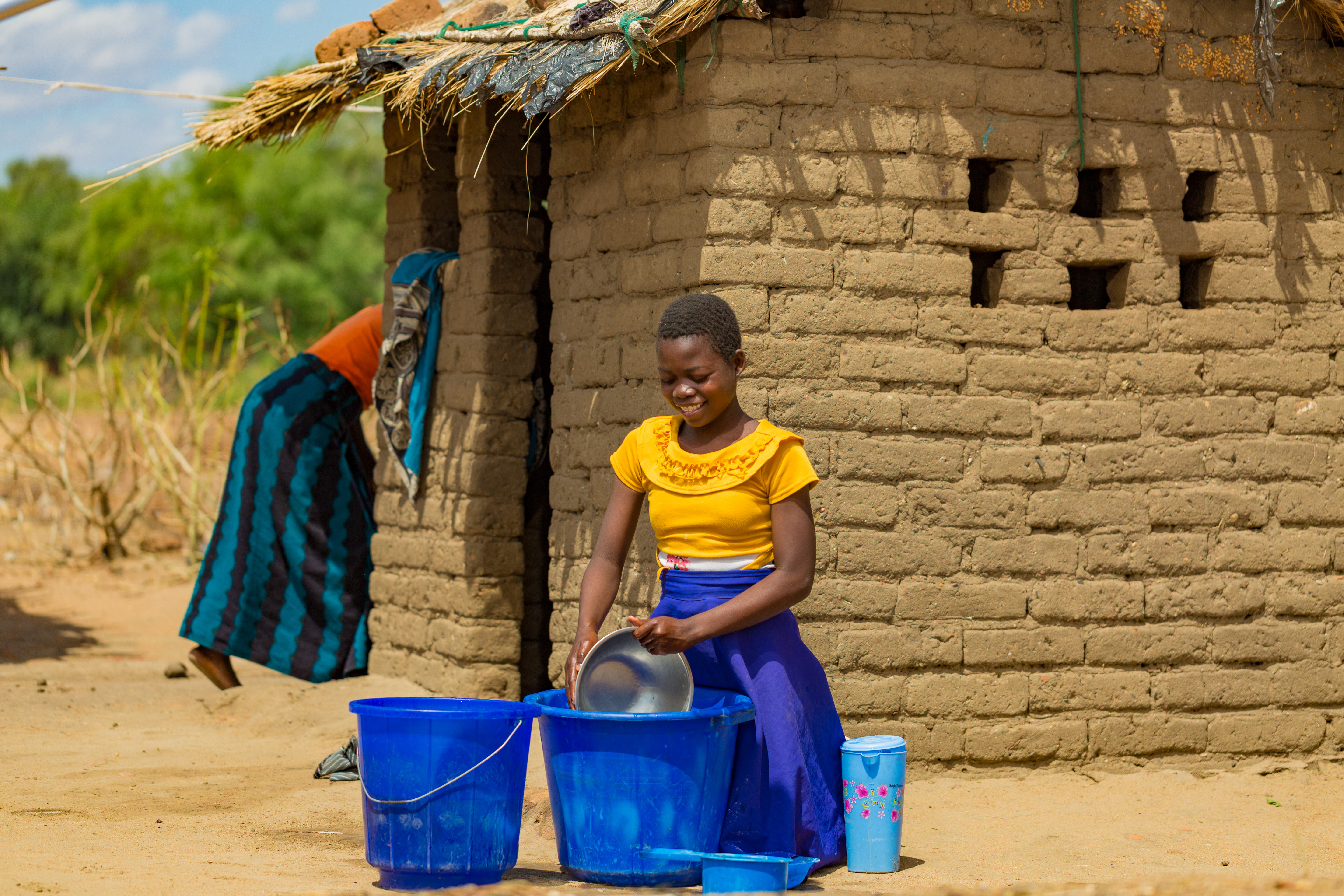Walking for Water: Chifundo’s Daily Struggle

Every morning before dawn, 13-year-old Chifundo rises with a single goal: fetch clean water before school. By 5 a.m., she sets off with a plastic pail, walking several kilometers to the nearest borehole in the next village. The alternative—drawing water from the nearby Bwanje River—is far worse.
Just 100 meters from her home, the river may seem convenient, but it is contaminated and a source of waterborne diseases. During the dry season, it dwindles to sandy pools shared with livestock.

“My grandmother and I sometimes have no choice but to dig into the riverbed for water,” Chifundo says. “We know it’s dirty, but what else can we do?”
Her grandmother, Feliness, recalls the dangers: “Last year, I got cholera from drinking that water. The clinic is 10 kilometers away, and we had no transport. It’s a miracle I survived.”
The lack of safe water forces Chifundo to haul up to 30 liters daily from Kulanga’s borehole, leaving her exhausted and often late for school.
“I’ve been sent back eight times because I arrived late,” she says. Poverty adds to her struggles—she cannot afford a school uniform, making her feel ashamed and sometimes sent home.

Despite these challenges, Chifundo dreams of becoming a nurse.
“We need a borehole here in our village. It would save us from walking so far and protect us from getting sick. Then I could focus on my studies and achieve my dream.”
Her resilience is inspiring, but her future depends on access to something as basic as clean water. “I just hope someone will help us before it’s too late,” she says.